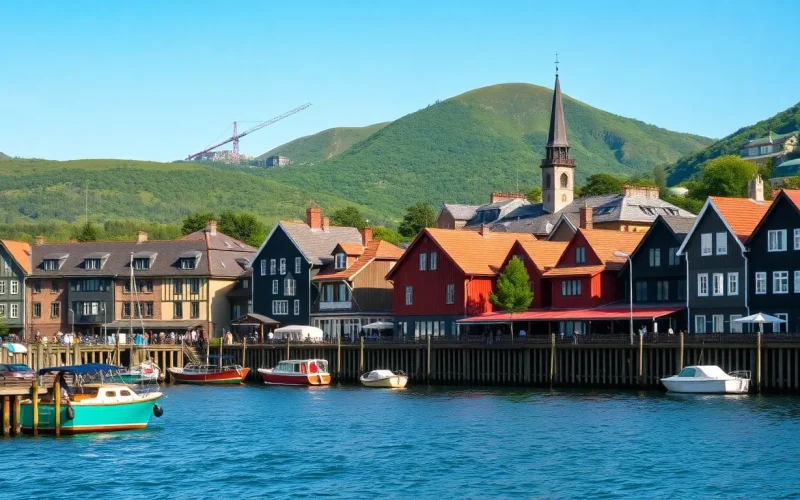Table of Contents
ToggleWhen it comes to chess, few names resonate like Magnus Carlsen. This Norwegian grandmaster isn’t just a chess prodigy; he’s the reigning king of the 64 squares. But while his skills are world-renowned, many still wonder: where exactly is this chess genius from? Spoiler alert: it’s not a secret underground lair, though that would be pretty cool.
Background On Magnus Carlsen
Magnus Carlsen was born on November 30, 1990, in Tonsberg, Norway. Raised in a family that valued education and culture, he displayed impressive talent for chess at a young age. At just 13 years old, he became the youngest grandmaster in history at that time. Carlsen’s early tournaments showcased his strategic brilliance and made him a prominent figure in chess circles.
His ascendancy to the top began in 2010 when he first captured the title of World Chess Champion. In that year, he became the youngest player to reach a rating of 2800, a benchmark for elite chess players. Norway, largely recognized for its contributions to chess, stands proud of its iconic champion. The Norwegian Chess Federation has celebrated Carlsen’s achievements, emphasizing his role in popularizing the game.
In addition to being a world champion, Carlsen has won multiple prestigious tournaments, like the Tata Steel Chess Tournament and the Sinquefield Cup. His aggressive yet versatile playing style captivates audiences everywhere. Internationally, he serves as a catalyst for inspiring the next generation of chess players, with numerous aspiring grandmasters looking up to him.
Carlsen’s influence extends beyond the chessboard. He participates in various media projects and promotional activities that enhance the visibility of chess. Notably, the Netflix series “The Queen’s Gambit” has piqued interest in the game, resulting in a spike in chess-related activities and competitions. Through his contributions, Carlsen continues to shape the chess world, reinforcing Norway’s position as a chess powerhouse.
Early Life And Origins

Magnus Carlsen’s early life in Norway significantly shaped his chess career. Born in Tonsberg, Norway, he grew up in a supportive family that encouraged his interests.
Birthplace And Family
Carlsen was born to Henrik and Sigrun Carlsen. His father worked as an engineer, while his mother was a chemist. Their nurturing environment fostered Carlsen’s precocious talent in chess from a very young age. Exposure to various intellectual pursuits influenced his growth. Carlsen’s family played an active role in his early chess education, providing resources and support.
Growing Up In Norway
Growing up in Norway provided Carlsen with a unique blend of cultural experiences. He frequently visited local chess clubs, where he practiced and honed his skills. Norway’s rich chess history fueled his ambition, making him a prominent figure among local players. Attending school in a competitive environment, Carlsen balanced academics with his chess passion. Community involvement and participation in tournaments from an early age helped cultivate his strategic thinking and tactical abilities.
Magnus Carlsen’s Chess Journey
Magnus Carlsen’s chess journey began at an early age in Norway. He quickly displayed profound aptitude for the game, capturing attention within the chess community.
Introduction To Chess
Carlsen first learned chess at the age of 5, guided by his father. Early on, he showed potential, often practicing with various opponents. In local clubs, he gained valuable experience, honing his skills against seasoned players. Competitions became a regular fixture in his life, further fueling his passion. By 8, he participated in his first national tournament, proving his talent among peers. His family supported his chess interests, providing encouragement that fostered his early development.
Rise To Prominence
By 2010, Carlsen became a household name in chess, winning his first World Chess Championship title. At just 19, he established the record as the youngest player to reach a 2800 Elo rating. Competing in prestigious events, he showcased his strategic prowess and adaptability. Recognitions and accolades filled his path, drawing comparisons to chess legends. His captivating playing style attracted fans and media, cementing his reputation. Among his notable victories are multiple titles at renowned tournaments like the Tata Steel Chess Tournament and the Sinquefield Cup. Each achievement further solidified his status as a leading figure in the chess world.
Cultural Impact
Magnus Carlsen’s influence in the chess world extends far beyond the board. His success in Norway has reshaped how the country views the game, increasing its popularity among young players. Local schools now incorporate chess into their curricula, nurturing a new generation of talent inspired by Carlsen’s achievements.
Magnus Carlsen In Norway
In Norway, Carlsen stands as a national icon. His victories resonate with the pride of a nation, uniting chess enthusiasts across age groups. The rise of chess clubs throughout the country can be attributed to his achievements. Numerous chess tournaments, named in his honor, attract hundreds of participants annually. Local media frequently highlight his matches, turning them into events that spark national interest.
International Recognition
Worldwide, Carlsen’s name evokes respect and admiration. His chess skills earned him multiple accolades, solidifying his status as one of the greatest players of all time. Leading online platforms and tournaments now feature him prominently, elevating global engagement with chess. Carlsen’s participation in special events, such as exhibitions and charity matches, draws international media coverage, further enhancing the game’s visibility. His presence at major competitions inspires players everywhere, manifesting a culture of excellence within chess.
Magnus Carlsen’s journey from Tonsberg to global chess stardom showcases the profound impact of his Norwegian roots. His achievements have not only elevated his status as a chess champion but also inspired a new generation of players in Norway and beyond. With his innovative style and charismatic presence, Carlsen has transformed the perception of chess, making it accessible and appealing to many. As he continues to break barriers and set records, his legacy will undoubtedly shape the future of the game for years to come. Norway’s chess scene thrives under his influence, ensuring that his contributions will resonate far into the future.





